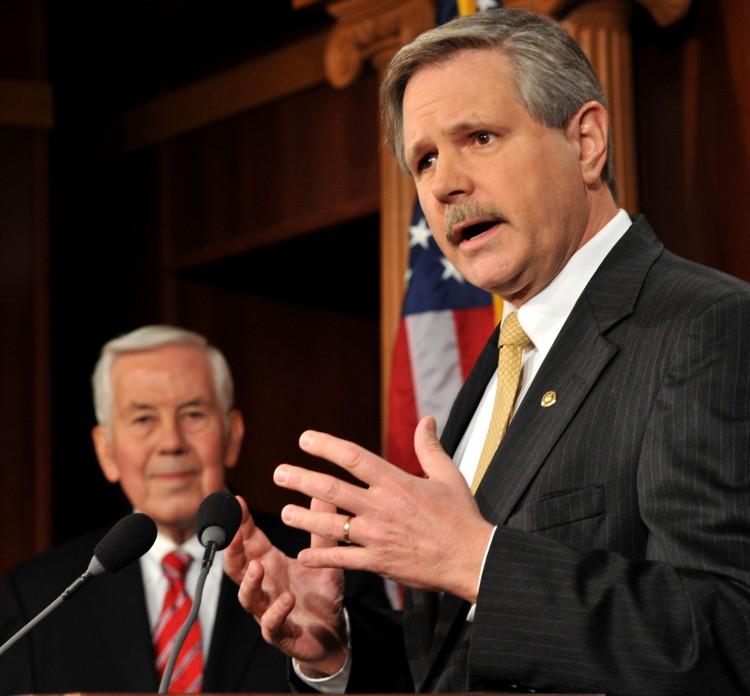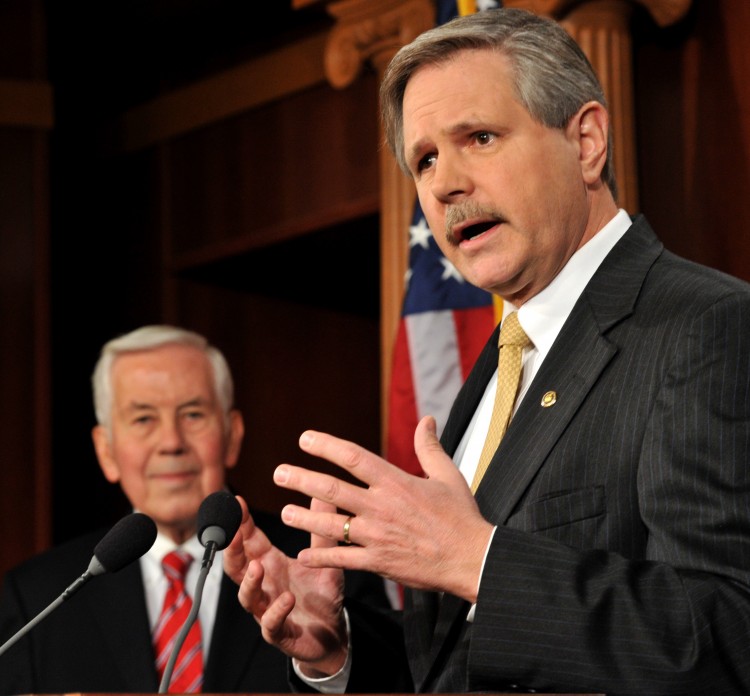Republicans on Saturday put pressure on the Obama administration to approve the transnational Keystone XL pipeline by appealing to the public during a weekly radio address.
Sen. John Hoeven of North Dakota, a strong supporter of the pipeline, delivered the address for the GOP, and called Keystone XL “the largest shovel-ready project in the country.”
Citing jobs, energy independence, and national security as reasons for approving the project, Hoeven said that not moving forward with the pipeline “makes no sense,” and could result in oil going overseas.
“The point is this,” Hoeven continued, “If the Keystone energy pipeline isn’t built, Canadian oil will still be transported; 700,000 barrels a day of it. But, instead of coming to our refineries in the U.S., instead of reducing our dependence on Middle-Eastern oil, and keeping down the cost for American consumers, that oil will go to China.”
The proposed pipeline project, developed by Canada’s TransCanada corporation, would cost an estimated $7 billion, bisecting the country as it pumps oil retrieved from oil shale fields in Canada down to refineries on the Texas Gulf Coast.
The Senator spoke out about regulation and too much bureaucracy keeping these projects from happening. House Republicans, as part of the payroll tax cut proposal signed in December, imposed a deadline on the White House to make a decision by Feb. 21 as to whether to move the project forward.
“Last month the U.S. Congress passed a payroll tax cut measure which includes an important provision that I along with Sen. Richard Lugar (R-Ind.) introduced to clear the way for the Keystone XL pipeline.”
The Senator asserted that, if we fail to approve the project, a projected $1.2 trillion will be lost. Additionally, 2 million potential jobs per year would be lost or be nonexistent due to the pipeline not existing.
TransCanada, in the latest Jan. 10 projections released by the company, estimates it would create 20,000 new jobs if the pipeline is constructed, garnering support from unions. In fact, according to the press release, the Keystone XL pipeline is the largest infrastructure project currently in the works in the United States.
“These are new, real U.S. jobs,” said TransCanada’s president and chief executive officer Russ Girling, in a Jan. 10 media advisory. “Thirteen thousand Americans would be put to work constructing our Keystone XL project. Seven thousand more jobs would be created in the U.S. manufacturing sector, making the materials needed to build Keystone XL.”
With environmentalists and advocates in opposition to Keystone XL, and unions supportive, the split among a traditionally Democratic base may present an election year challenge for Democrats and the president.
The move “forces the hand of the president to reject the pipeline and wait for a while to see if it has merit” said Democratic Sen. Tim Johnson of South Dakota, according to a report in Iowa’s Altoona Herald.
Both North and South Dakota are states directly impacted by the construction of the pipeline.
In November, President Obama and the State Department postponed approval of the project and construction until 2013—after the upcoming elections—and cited environmental concerns and the need to explore alternative routes for the pipeline.
The original proposed route of the pipeline through the Sand Hills region of Nebraska, and subsequent concerns over a major underground aquifer in the region, saw landowners and environmentalists putting pressure on the White House to reconsider approval of the pipeline.
Since then, the Nebraska legislator has approved a proposal to reroute the pipeline segment away from the aquifer. TransCanada subsequently agreed to explore alternative routes, and says they are close to achieving a solution.
“In a matter of a very few weeks, we will have a route that everyone agrees on,” said TransCanada official Alex Pourbaix last week, hoping to allay the concerns of U.S. regulators, according to the Washington Post.
According to TransCanada the pipeline has the capacity to deliver 830,000 barrels a day to the United States from Alberta, Canada. Sen. Hoeven’s home state of North Dakota, along with the Bakken region of Montana, would also contribute approximately 100,000 barrels of oil a day that would run through the pipeline to the Gulf Coast.





